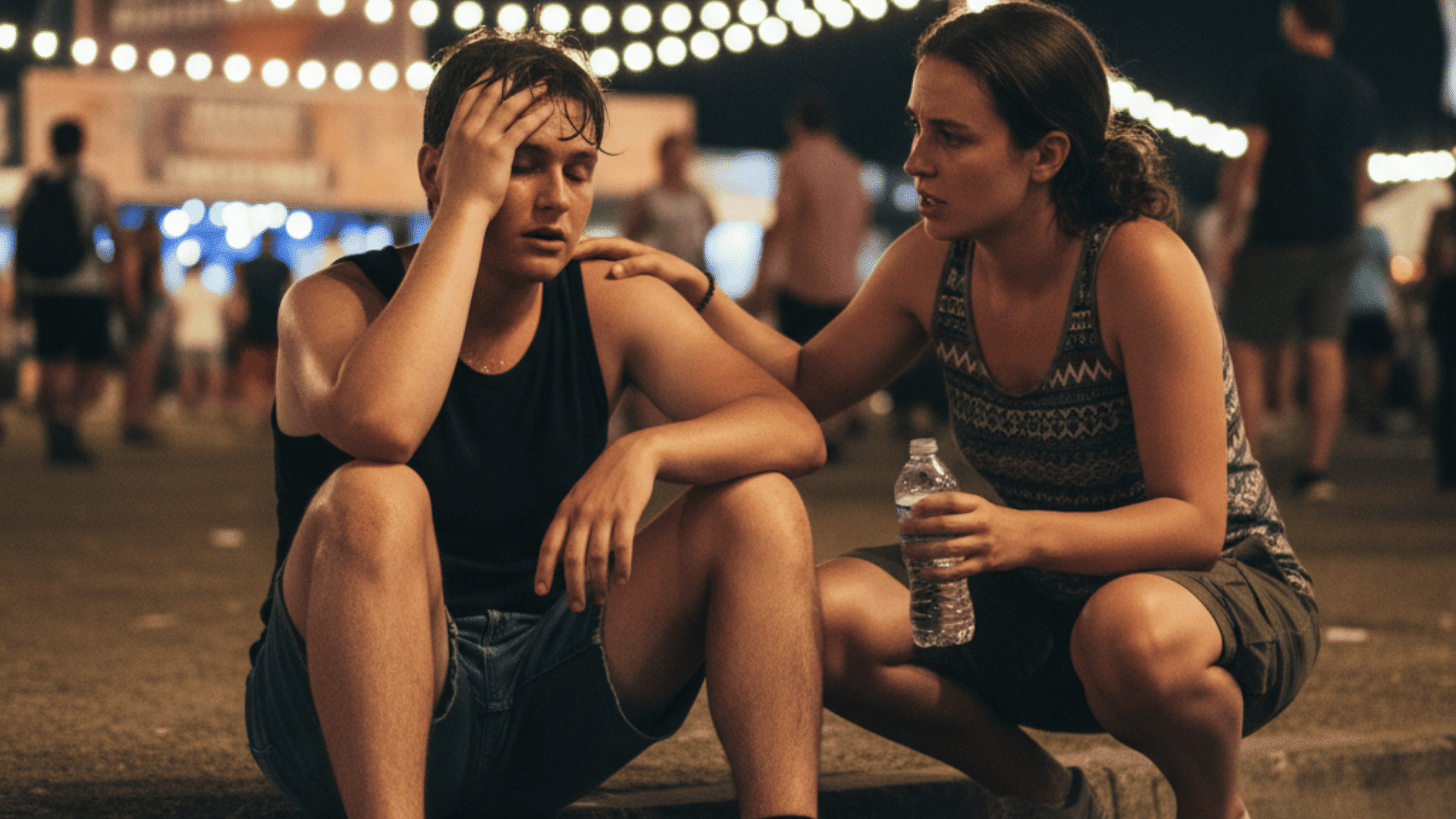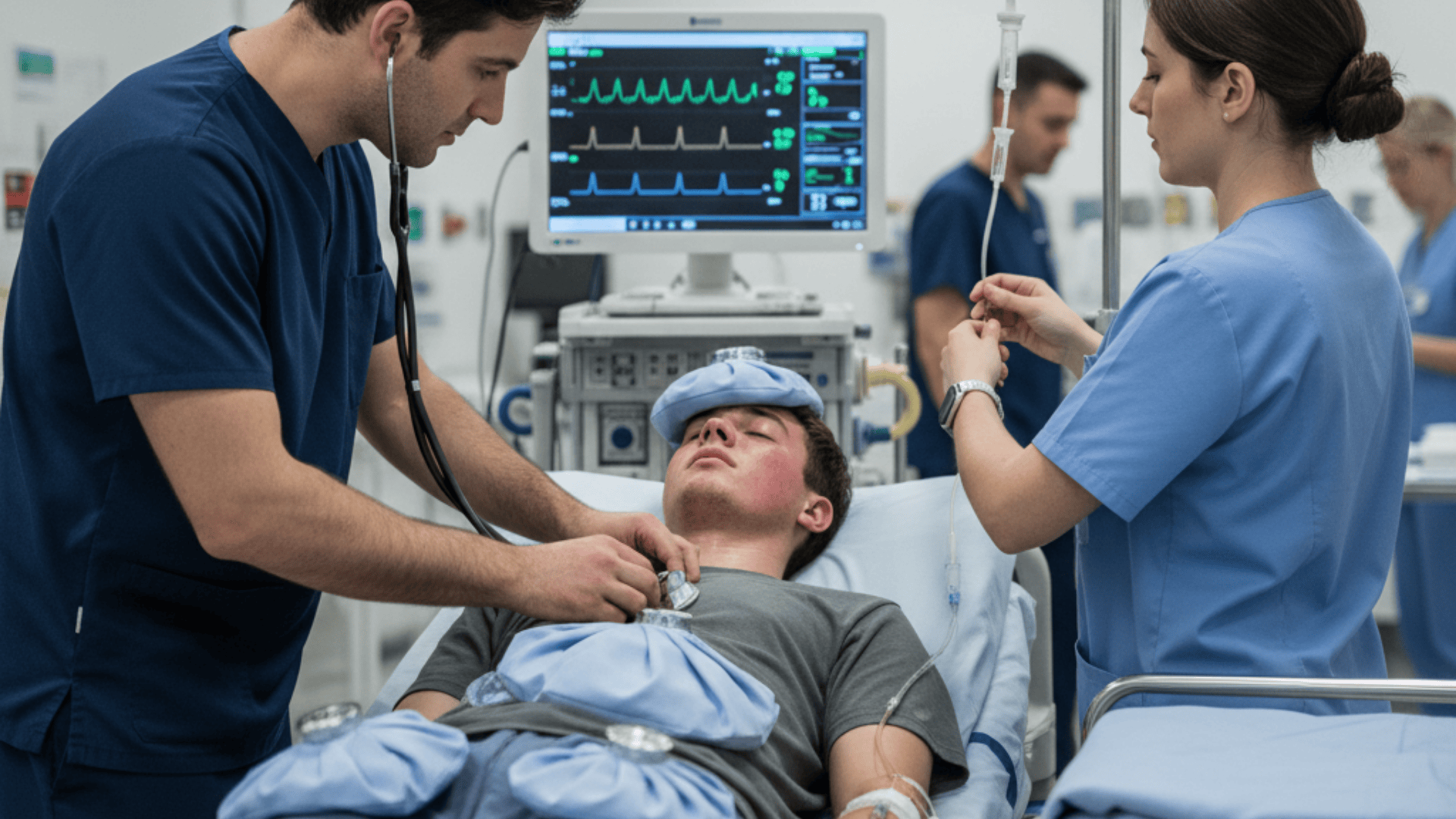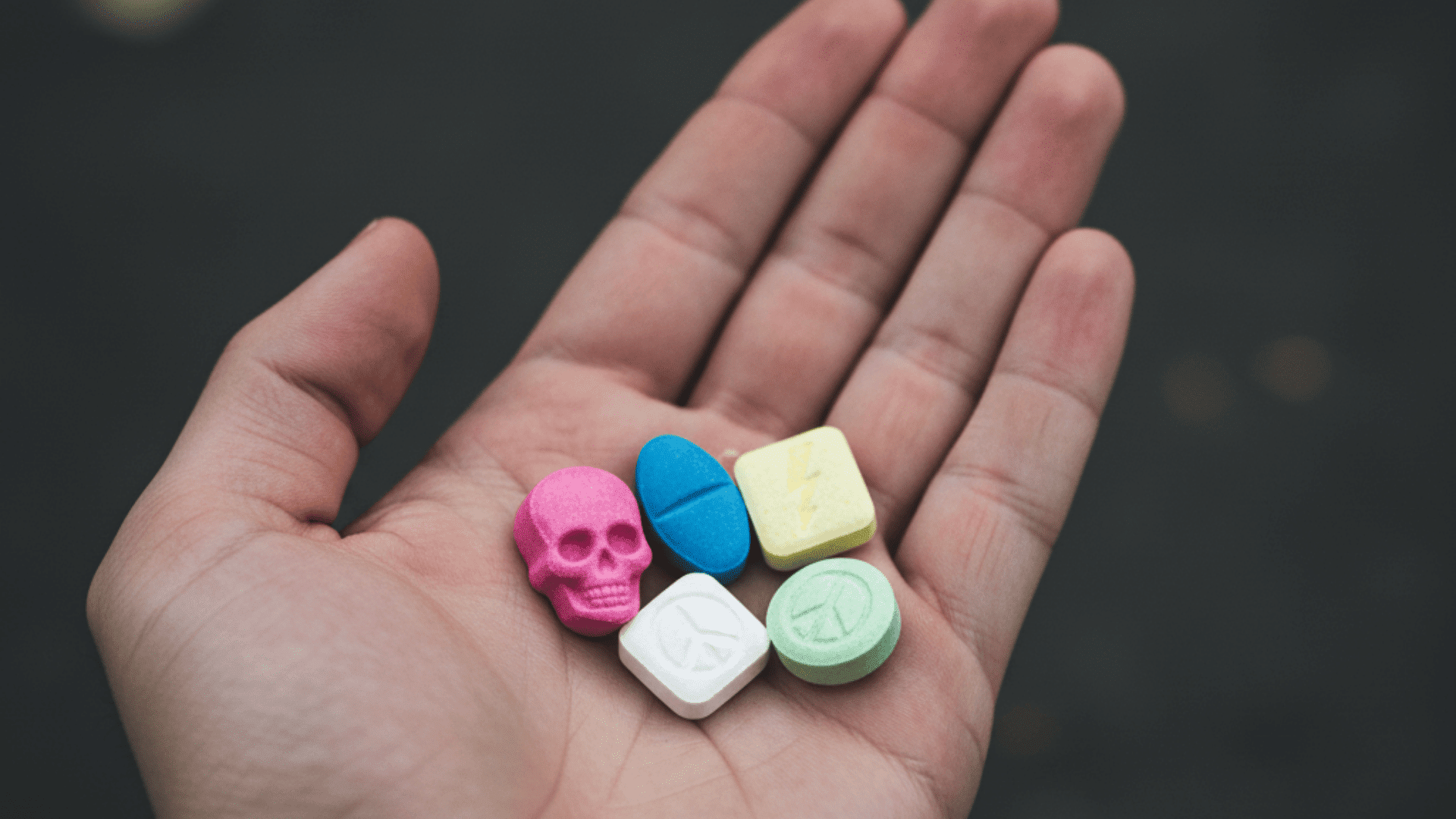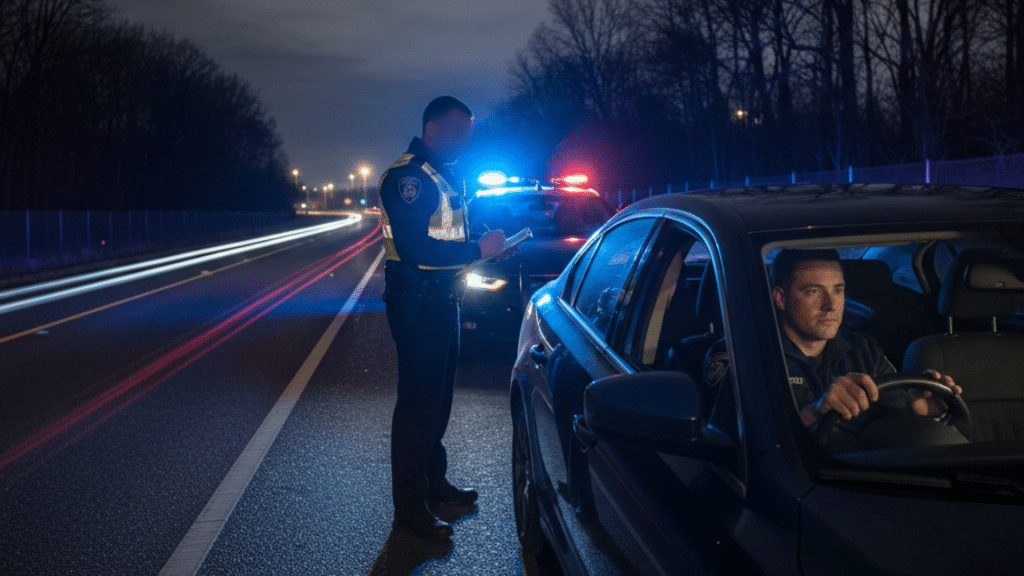Every festival season, I hear the same refrain: “MDMA’s pretty safe if you’re careful.”
And look, compared to some substances, there’s truth to that, but here’s what worries me. People get so comfortable with molly that they forget overdose is absolutely possible, and when it happens, it can turn deadly fast.
I’ve seen too many stories of nights that started with dancing and ended in an ICU. So let’s talk about what MDMA overdose actually looks like, why it happens, and crucially, what you can do if someone around you is in trouble.
Think of this as harm reduction knowledge everyone should have in their back pocket.
This is purely educational; I’m not giving medical or legal advice here, just information that might save a life.
What is MDMA / Ecstasy & How It Acts?
MDMA floods your brain with serotonin, dopamine, and norepinephrine; neurotransmitters controlling mood, energy, and empathy. It’s both a stimulant that revs up your heart and blood pressure, and an entactogen that creates emotional openness.
At typical doses, users feel euphoric, connected, and energized. Overdose is entirely different: body temperature spikes dangerously, heart rate becomes erratic, seizures can happen, and confusion replaces euphoria.
All those manageable effects become life-threatening when your system gets overwhelmed.
Here’s the real danger: most street MDMA isn’t pure. Pills and powders often contain methamphetamine, synthetic cathinones, or other stimulants that are far more toxic.
You might think you’re dosing safely, but you’re actually taking something completely different that overdoses at much lower amounts. This unpredictability turns every use into a gamble.
Yes, You Can Overdose on MDMA!
Let me be crystal clear: MDMA overdose is real and can be fatal. It’s not just about taking a massive amount; overdose can happen from moderate doses combined with hot environments, dehydration, or repeated dosing throughout a night.
I’ve seen people dismiss warning signs as “just rolling hard,” but there’s a huge difference between common side effects and actual toxicity.
Jaw clenching, sweating, and pupil dilation? Normal, though uncomfortable. Confusion, extremely high body temperature, rigid muscles, seizures, or loss of consciousness? That’s toxicity requiring immediate medical attention.
The gap between an intense experience and a medical emergency is narrower than most people think, especially when environmental factors stack up against you.
Symptoms & Warning Signs of an MDMA Overdose

Recognizing overdose symptoms early can save a life. The progression from concerning signs to a life-threatening emergency can happen fast, sometimes within minutes.
Here’s what to watch for when someone’s used MDMA.
Early & Moderate Signs
Your body starts sending distress signals before things get critical. These warning signs mean someone needs close monitoring and possibly medical attention:
- Heart racing way too fast, blood pressure spiking, extreme restlessness or agitation beyond normal high energy.
- Profuse sweating, soaking through clothes, body temperature climbing dangerously high, with skin feeling burning hot to the touch.
- Uncontrollable tremors or muscle twitching, pupils so dilated you barely see the iris, persistent nausea, and vomiting.
- Serotonin syndrome symptoms like rigid muscles, intense shivering even when hot, and exaggerated reflexes when limbs are moved.
Severe & Life-Threatening Signs
This is when you call emergency services immediately, no hesitation. These symptoms mean someone is dying:
- Seizures with body convulsing uncontrollably, loss of consciousness, or slipping into a coma.
- Muscles are breaking down severely, causing dark urine or no urination, and multiple organs are starting to fail simultaneously.
- Heart struggling or blood pressure crashing, breathing becoming labored, irregular, or stopping.
- Severe confusion about location or identity, wild delirium, violent agitation, and complete inability to cool down despite interventions.
Trust your instincts here. If something feels seriously wrong, it probably is. Don’t wait for every severe symptom to appear before acting; by then, you might be too late.
Risk Factors That Make Overdose More Likely
Overdose isn’t random; certain factors dramatically increase your risk. Understanding these can help you recognize when someone’s in a particularly dangerous situation.
| Risk Factor | Mechanism | Key Danger |
|---|---|---|
| High or repeated doses | Drug accumulation exceeds metabolism | Toxic blood levels, organ stress |
| Hot, crowded environments / prolonged dancing | Impaired thermoregulation + physical exertion | Life-threatening hyperthermia |
| Poor hydration or electrolyte imbalance | Hyponatremia or dehydration | Brain swelling or drug concentration |
| Other stimulants, SSRIs, and MAOIs | Excessive serotonin release | Serotonin syndrome, cardiac arrest |
| Adulterated pills (PMA, meth, cathinones) | Unknown substances, higher potency | Unpredictable toxicity |
| Preexisting conditions (heart, liver, kidney) | Compromised organ function | Reduced drug clearance, organ failure |
These risk factors don’t just add up; they multiply each other’s danger. Someone with a heart condition taking MDMA in a hot club while on antidepressants faces exponentially higher risk than any single factor alone would suggest.
What Happens in the Body?
When MDMA floods your system beyond safe levels, multiple catastrophic processes kick off simultaneously.
Excessive serotonin release causes dangerous overstimulation; your neurons literally can’t handle the bombardment, leading to serotonin syndrome, where your brain chemistry goes haywire.
Meanwhile, your body temperature skyrockets while blood vessels constrict, sabotaging your natural cooling mechanisms and triggering heat stroke.
As muscles overwork in the heat, they start breaking down, releasing proteins that poison your kidneys and create metabolic chaos. Your heart struggles against skyrocketing blood pressure and oxygen demands it can’t meet.
These cascading failures feed into each other, hyperthermia worsens muscle breakdown, kidney failure compounds cardiovascular strain, until organs begin shutting down.
MDMA Overdose: Diagnosis & Medical Treatment

When someone arrives at the emergency department with a suspected MDMA overdose, doctors move fast. Treatment focuses on stabilizing vital functions while addressing the specific toxicity mechanisms causing harm.
How Doctors Diagnose MDMA Overdose
Medical teams rapidly assess vital signs: heart rate, blood pressure, temperature, and mental status. Comprehensive labs check kidney function, liver enzymes, and creatine kinase levels, revealing muscle breakdown.
ECG monitors heart rhythm while blood gas analysis detects metabolic acidosis and oxygen problems. These tests identify which systems are failing and guide treatment priorities. More on diagnostic approaches at StatPearls.
Emergency Treatment Protocols
Immediate care focuses on aggressive cooling through ice packs and cooling blankets to combat hyperthermia. IV hydration restores balance carefully while benzodiazepines calm agitation and prevent seizures.
For serotonin syndrome, cyproheptadine blocks excess receptor activity. Severe complications require renal support, dialysis, ventilators, or intensive care for multiorgan failure. Details on management at NCBI.
What You Should Do If You Suspect an Overdose?
This is the moment that matters most. Your actions in the next few minutes could save someone’s life.
Here’s exactly what to do if you think someone’s overdosing on MDMA.
- Call emergency services immediately and tell them you suspect an MDMA overdose; every minute counts, and paramedics need accurate information to prepare.
- Move them to a cool, calm environment and help lower body temperature with cool (not ice-cold) water or damp towels on their neck and forehead.
- Keep them hydrated with small sips of water, but don’t force excessive amounts, which can cause dangerous electrolyte imbalances.
- Stay with them constantly and monitor their breathing, consciousness, and symptoms; don’t leave them alone or let friends take them home to “sleep it off”.
- Be honest with medical responders about what substances were taken and how much; most regions have Good Samaritan laws protecting people seeking help for overdoses.
Don’t try home remedies, don’t wait to see if they improve, and don’t worry about legal consequences in the moment. Medical teams care about saving lives, not prosecuting drug users.
Resources & References
If you want to learn more about MDMA toxicity and emergency treatment, these medical and educational resources offer solid, evidence-based information.
StatPearls breaks down the pharmacology and toxicity mechanisms in technical detail, while American Addiction Centers explains overdose signs in straightforward language for anyone to understand.
Healthdirect Australia covers MDMA risks and harm reduction approaches accessibly. For peer-reviewed research on severe complications like hyperthermia and organ failure, check the British Journal of Anaesthesia.
These sources shaped this guide and provide additional depth if you’re looking to understand MDMA safety and emergency response more thoroughly.
That’s a Wrap
Look, I get it; nobody wants to be the person who calls an ambulance at a party. But I’ve walked you through this information because recognizing overdose symptoms and acting fast genuinely saves lives.
MDMA overdose isn’t some abstract risk that happens to other people; it’s a real danger amplified by hot environments, mystery pills, and the temptation to redose.
If you take away one thing from this post, let it be this: when someone’s in trouble, every second of hesitation matters. Trust your gut, make the call, and don’t let fear of consequences stop you from getting help.
Have thoughts on harm reduction strategies or want to share what you’ve learned from your own experiences? Leave a comment below; I’m here for the conversation.






